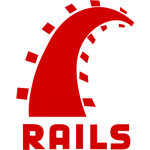If you’re a highly-qualified professional working with software engineering, development, testing, implementing, or support, chances are you are also in high demand. Think about it: how often do HR recruiters contact you with new, “must-see” job offers? And how many of those were actually relevant to your career in IT?
If you’re considering exploring new ground but don’t like to waste time with offers that are beneath your skill level, have unattractive compensation packages, or simply don’t add to your quality of life, this is a must-read!
It’ll help you to better understand what the job market looks like for software engineering and related professions, as well as help you make the choices that will help you land your dream job.
What questions are in your mind?
What doubts are in your mind?
- #1 IT Career: How Do I Know It’s Time To Switch Jobs?
- #2 What Are My Tech Job Options?
- #3 Where Do I Find The Best Job For Me?
- #4 What Are The Top Skills Tech Recruiters Are Looking For?
- #5 How Do I Increase My Chances Of Being Hired For Better IT Jobs?
- #6 How Does Ubiminds Help My Dev Career?
#1 IT Career: How Do I Know It’s Time To Switch Jobs?
Usually, there are plenty of signs that your current work arrangement isn’t as beneficial to your career in IT as it once was. However, not all decisions are clear-cut. Sometimes you need stability. At other moments, there is some type of agreement or contract binding you to a project for “X” amount of time. We’re here to help you decide.
1st Analysis: Career Advancements
It’s always important to factor in whether keeping things as they are might harm your IT career aspirations in the future, even if they seem like small issues at the present time.
Here is a quick Q&A to help you to test whether it’s time to move on:
- Is your work meaningful? To you, to society, to causes that you wish to support. If your tech skills and knowledge are being used to empower people and organizations you no longer believe in, why continue to do so? Jump boat if, on top of it, the environment has become toxic.
- Do you have a voice? If you spend an extraordinary amount of time and effort to reach your qualification level, it should be put to good use. If there are frequent impediments (be it bias, product maturation, etc.) to expressing your opinion, or if it is constantly overrun by decision-makers, maybe you should look into alternatives with better synergy.
- Are you evolving as fast as you need to? Especially in tech, there is a constant stream of new languages and frameworks one must keep up with. If you’re not constantly learning in a challenging environment, chances are the job market will eventually leave you behind. Jump on board a company that is more in sync with the times.
- Do you earn enough money? Happiness is important, but we all got bills to pay. Moreover, it’s a matter of ROI – Return On Investment. If you’re putting in more than you’re getting out, you should reevaluate your current position. Red flag if you haven’t received any advancements for three years or more. Either you need to up your skill level, or you are wasting your time. Benchmark to figure out which of the two apply to you.
The Forbes Coaches Council has a list of their own. But to sum it up, all you have to do before making a decision is to ask yourself: “have I outgrown my position?”.
2nd Analysis: Work-life Balance
Fair enough, a career choice is “only” a career choice. Yet, it impacts how much time you have available for your loved ones, your health, and the kind of opportunities that will be available to you in the future. That is why your personal interests should also be taken into consideration when assessing whether or not you should be looking into new work opportunities to build a career in IT.
As a software engineer, developer, coder, or specialist in a related field of work, you’re in a privileged position – your skills are in high demand! There is a significant shortage of tech professionals, which opens some room for bargaining with companies. Not by chance, 39% of American workers declined a raise or a promotion, or quit their job in favor of more flexible working conditions.
Avoiding commutes, spending more time with children or elderly parents, staying in when sick are just a few benefits of work mobility. Some professionals find it easier to focus when working from home, while others prefer using close-to-home coworking or other shared spaces to share thoughts and ideas with other creative minds. Either way, the decision lies more on the professional than on the company.
However, this flexibility doesn’t mean a lack of accountability, as remote software devs are expected to meet deadlines, take part in daily stand-ups and meetings, as well as other rituals set for their distributed team. This also means you have remote work policies to follow and comply with.
There are three aspects you need to be on the lookout for:
- Workload;
- Time management skills;
- Over-collaboration.
Balancing these is not as intuitive as it may seem, and is essential to avoid both burnout and distractions.
→ In fact, we can support your current company is getting ready for distributed work. By downloading our distributed-readiness checklist, they have access to a simple grading system to know where the company is at right now. Plus, an action plan template to set your digital product team up for success!
#2 What Are My Tech Job Options?
If you’ve realized it is time to find a new tech job, there are preferences you can look into. There are different options available to you and are sometimes negotiable.
Project-based vs. Product-based work
More and more companies are switching to product-based development, and there are plenty of reasons for tech developers to do the same. While project-based development thinks of development and operation as temporary, product-based development is a more permanent way of thinking about applications.
This results in a series of differences regarding how software teams work:
- Apps and software are viewed from a whole-life-cycle-development perspective, instead of temporary app pipelines;
- Customer-centricity becomes the norm, and the focus shifts towards delivering perceived value, not the product per se;
- Employees are evaluated on their contribution to capability and value generation, rather than individual metrics;
- Shared responsibility and collaboration become modus operandi.
Also, Waterfall organized work is being left behind, Agile methodologies and data-driven decisions are becoming market standard. This can be an interesting question to pose to interviewers who are interesting in developed a career in IT.
On-location vs. Distributed vs. Remote
In-house product teams are the most traditional: although they might not be a 9-to-5 work schedule, all team members are allocated within the same building or buildings. A lot of communication is face-to-face and there isn’t a lot of flexibility in consideration of the aforementioned quality of life factors.
When one or a few of the members goes remote and works from elsewhere, they might be left out of so many interactions. They might as well be outsourced – the relationship can become similar to that of a contractor or service provider. There is no physical onsite office presence and it is quite usual for members to work from home.
However, when the team is distributed, every single one of the developers uses the same channels and interaction opportunities, and all communication happens on an equal footing. This usually means better-organized processes, documentation, and policies so everyone can participate equally.
These distributed teams companies offer one or more offices in which some employees can choose to work from and apply a hybrid model. It means mixing different cultural practices from on-location and remote to get the best of both worlds.
Homeoffice vs. Coworking Space vs. Regular Office
While home offices are usually not designed at all – performance and ergonomics go out the window –, regular offices and coworking are specially tailored around productivity.
From high-speed internet to sound-proof meeting rooms, chances are they will allow you to do more in less time. And better, considering there are fewer distractions with upkeep and amenities.
Moreover, coworking spaces usually turn out to be great places for networking opportunities and collaboration. However, you should consider whether privacy might be an issue and how costs add up – after all, coworking isn’t free.
Flexibility vs. Mobility
Do you wish to become a digital nomad? Or is staying put more your thing? When are you more productive? If you go fully remote, chances are you will have total mobility and flexibility regarding work hours, time, and attendance. And will only have to worry about meeting deadlines. However, it can be rather lonely work!
Instead, if you go distributed, chances are your company has chosen nearshore over offshore hiring specifically to keep everyone in the same time zone and similar work schedules.
And it makes plenty of sense: with everyone online at the same time, it is easier to communicate in real-time over whichever channels it chooses, and you will be required to take part in more frequent rituals.
The plus side of being part of a distributed team? You’re never really alone and can count on plenty of support from your peers.
National vs. International Companies
So maybe you have already decided that yes, you want to change your job, and even have your mindset on some preferences regarding work environment and framework.
But have you thought of expanding your career in IT internationally? A good place to start is by working for a foreign company from your home country.
This is a particularly good way to learn the work culture and expand your language skills, dipping your toe in before taking a full plunge. But be warned: you won’t gather the experience unless you belong to the hybrid model, being kept in constant interaction with your colleagues abroad.
This unique type of arrangement is invaluable and pales in comparison to when you are an outsourced project worker. Also, payment options tend to be more interesting, especially in situations in which one currency is stronger than the other.
#3 Where Do I Find The Best Job For Me?
Job aggregators are the best-known platforms, and Toptal, Revelo, and LinkedIn are well-known options. This doesn’t mean, however, that they will really help you to land that dream job. Out of these options, LinkedIn is probably your best bet. If you signal your skills and proficiencies, it becomes rather easy for tech recruiters to pick you up.
But, if you really wish for a job position that fulfills your professional and personal wants and needs, you should submit your resumé to tech talent agencies. In opposition to the prior alternatives, these are specialized in your field of knowledge and are better suited to match world-class professionals to outstanding companies.
#4 What Are The Top Skills Tech Recruiters Are Looking For?
There are plenty of frameworks, some used to customize the server-side (backend) and others to better adapt the user-side (frontend) of software and apps.
We’ve listed – not ranked – some of the most sought-after technology stacks, frameworks, and skills according to our customer base on the East Coast. Check it out!
→ Join our talent pool by clicking here!
 Angular
Angular
This is a key front-end framework for building rich Single-Page applications, used by Google, Microsoft, and Paypal. Angular enables complete client-side applications: Angular 1.x used Javascript, but later releases adopted Typescript, which is a superset of Javascript. Although it is not really SEO friendly per se, it can be optimized accordingly.
 Django
Django
Based on Python for cloud software development, this backend framework Django was made popular by Google and Instagram, among other well-known brands. The bonus: this model-view-template has in-built features – like authentication and messaging – and has security as its strong point. It prevents code execution in the template layer, for instance.
 Laravel
Laravel
One of the youngest backend frameworks of the lot, Laravel is a PHP model-view-controller framework. It comes with API support and includes more than enough packages to extend its reach. The downside is it doesn’t compare to Django or Express; thus, only being recommended for smaller projects.
 Ember
Ember
This JavaScript framework possesses two-way data binding just like Angular and comes with plenty of components out of the box. Google, Microsoft, Heroku, and Netflix use Ember often, as it revolves around developer productivity: to maximize it, Ember either eliminates the need for time-wasting activities or adopts some JS best practices in its design.
 Express / Node.js
Express / Node.js
The trend has already taken giants such as Accenture, IBM, and Uber, and is often used alongside other frameworks such as Kraken, Sails, and Loopback. Flexible, Express leverages Node.js’s performance, supporting full applications and REST API. Due to its minimalism and speed, this backend framework is not recommended for beginners, who may feel lost moving through it.
 Rails
Rails
Who still uses Rails for backend, you ask? Airbnb, GitHub, Hulu, and Shopify are some names that may ring a bell. Rails usually help beginners to jump-start their web development and can be picked up rather easily. The major pro is its library-like dependencies that extend functionalities, making it faster to develop an app. However, the initial ease gives in to a much steeper learning curve further along, and it can be quite hard to deploy and run in a production environment.
 React
React
Although React is not actually a framework, it’s a well-used frontend library. Developed and maintained by Facebook, it began to use a component-based architecture way before Angular and Vue. A major advantage here is that React can be used both on the server-side and client-side. It is also considered easy to learn due to its JSX syntax.
 Vue.js
Vue.js
Vue.js is the new up-and-coming JavaScript framework, and although it isn’t supported by Facebook and Google, other big companies already have their eye on it. Also, a component architecture based, Vue helps developers to build complete frontend applications. However, it is quite progressive and not fully compatible with older projects.
#5 How Do I Increase My Chances Of Being Hired For Better IT Jobs?
Do any of those frameworks sound appealing? Pick your stack and start cracking! But if you really, really want the best possible job, you need to become agnostic regarding technology.
Willingness to adapt and learn is essential to good problem-solving, and companies prefer to welcome to their ranks software pros that can grow and evolve with the product.
Although it is important to educate yourself and keep moving forward with the times, companies consider cultural fit a major part of the evaluation process and your social/behavioral soft skills can make or break your hiring.
This includes communication, and if English is required, that means you need to get comfortable with speaking full-time and be able to host meetings, for example. Reading is simply not enough in these cases.
→ Good tip: if you do speak advanced English but are feeling rusty or insecure, you can always take one or two conversational classes before your interview to get back on track.
Showing interest is also important. Before the interview with potential employers, pay their website a visit, touch base with any relations you have that work in/for/with the company and practice your answers to most common questions.
Trying for a job is just like dating: you have to put in some effort if you want to move forward with the relationship.
#6 How Does Ubiminds Help My Dev Career?
We place highly-qualified professionals in top-notch jobs. Find full-time, reliable remote work for American companies with Ubiminds. We match software engineers and innovative, performance-based, and high-paying companies.
Sounds interesting? Let’s talk asap.

International Marketing Leader, specialized in tech. Proud to have built marketing and business generation structures for some of the fastest-growing SaaS companies on both sides of the Atlantic (UK, DACH, Iberia, LatAm, and NorthAm). Big fan of motherhood, world music, marketing, and backpacking. A little bit nerdy too!




